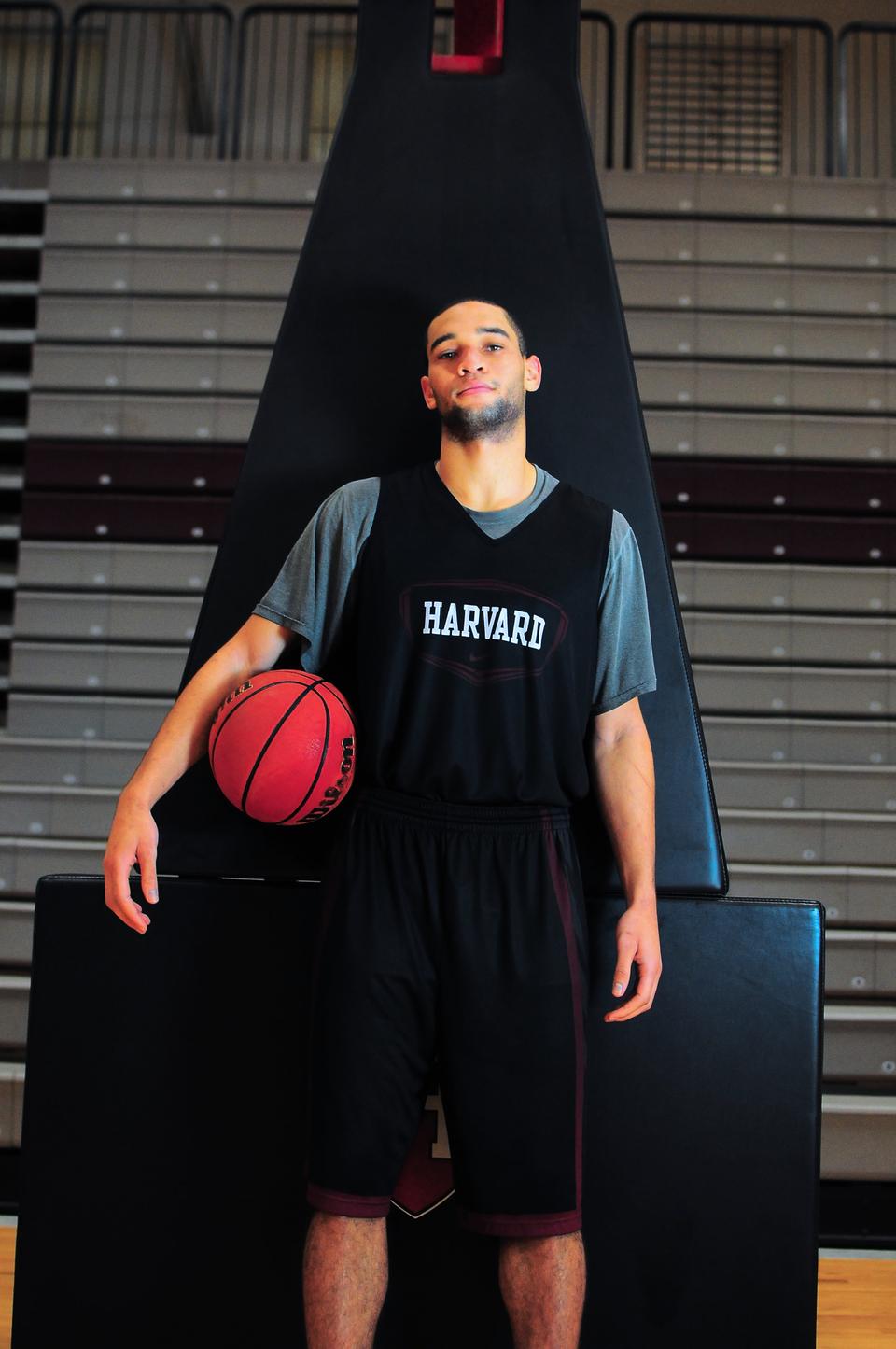
News
Harvard Grad Union Agrees To Bargain Without Ground Rules

News
Harvard Chabad Petitions to Change City Zoning Laws

News
Kestenbaum Files Opposition to Harvard’s Request for Documents

News
Harvard Agrees to a 1-Year $6 Million PILOT Agreement With the City of Cambridge

News
HUA Election Will Feature No Referenda or Survey Questions
Taking the Lead

Christian Webster had a slew of questions running through his mind as he walked into Lavietes Pavilion on that September afternoon that has been etched into his memory.
Webster can still remember the exact questions he pondered as he entered the gymnasium: What am I going to say to the team? How am I supposed to act now? What am I going to do without my friends?
Just hours had passed since the senior had received a piece of shocking news: men’s basketball co-captains Kyle Casey and Brandyn Curry—Webster’s teammates, blockmates, and best friends since he arrived at Harvard back in 2009—were withdrawing from the College in the wake of the Gov. 1310 cheating scandal.
The news, which struck many because of its implications for the Ivy League men’s basketball title race, hit Webster on a personal level.
Curry and Casey’s departure also put Webster in an unexpected position; with the co-captains gone, Webster was now the team’s most experienced returning player.
All of these thoughts swirled through Webster’s mind as he entered Lavietes Pavilion that afternoon for the first practice of his Harvard career without his closest friends by his side. But Webster didn’t have much time to feel sorry for himself or his friends—or to think at all, for that matter.
Moments after Webster’s arrival, Crimson coach Tommy Amaker called the team together, and soon the spotlight shifted to the soft-spoken Webster, who was asked to address the team.
“The season must go on,” Webster recalls telling his teammates. “I know those are our boys—those are my closest friends—but we still have a season to play, and we can still win the Ivy League, and we can still do everything we wanted to do. We still have enough talent in this gym right now to do as much as we want.”
That afternoon, Webster became the Crimson’s leader.
“It definitely felt like it was out of a movie scene,” recalls sophomore Jonah Travis of Webster’s speech. “He just told us we can’t get hung up over [the loss of Curry and Casey]—this can’t be the season where we say, ‘Oh, we didn’t have these guys.’ He just said [that] we need to keep going, keep going strong.”
In early October, Travis and the rest of his Crimson teammates formally voted Webster and junior Laurent Rivard to be Harvard’s co-captains—a position Webster did not anticipate assuming when he returned to campus in August.
“I wasn’t prepared for it at all,” says Webster, who admits that vocal leadership isn’t something that comes naturally to him. “It was a little awkward at first. Everyone was kind of looking toward me for guidance.”
But heading into the Crimson’s season opener against MIT on Friday, Webster has adjusted to his new position.
“I’m not really a yeller, but if something is going wrong, I’ll huddle the team up,” he says. “It’s different for me to be more vocal, but it’s helped me grow a lot.”
Returning to the court has also helped Webster deal with the absence of his blockmates from the team.
“I still have times when it’s tough. I just try to work through it,” Webster says. “When I play basketball, I don’t think about anything [other] than what’s at hand.”
Webster is looking forward to tipping off the season for another reason as well: to prove that his performance last year was an anomaly.
After finishing second on the Crimson in scoring and earning an All-Ivy honorable mention as a sophomore, Webster had a disappointing junior campaign. His scoring average more than halved—dropping from 13.0 points per game to 4.5—and he attempted just 15 free throws (down from 123 a season before).
“I was getting caught up in people trying to tell me what to do, and I was trying to do different things,” Webster says. “I don’t know, it was just a lot of things going on mentally, and I was just not in tune.”
Over this past summer, Webster added another element to his on-court training. For hours, Webster pored over game tapes from a season ago, trying to pinpoint exactly what went wrong.
“It just looked like I wasn’t myself,” he says. “I wasn’t taking the shots that I usually take, and I wasn’t making the shots that I usually make.”
If the Crimson is going to compete for a conference title, all of that will have to change—something of which both Webster and Amaker are well aware.
“We’re going to need Christian to play very well for us,” Amaker says. “We need for him to be efficient, make open shots, to be as he was as a sophomore. That’s what we’re expecting, what we need, and he knows it.”
With the backing of his teammates, the co-captain believes he can return to his old ways.
“That my teammates want me to lead the team is the best compliment you can get,” Webster says. “I feel really confident right now in the team and myself.”
—Staff writer Martin Kessler can be reached at martin.kessler@college.harvard.edu.
Want to keep up with breaking news? Subscribe to our email newsletter.
Most Read
- Trump Administration Conditions Harvard’s Funding on Eliminating DEI, Restricting Protests
- Facing Trump’s Ultimatum, Harvard Has No Easy Choices
- Trump Admin’s $9 Billion Review of Harvard’s Grants Could Hit Boston’s Hospitals Hardest
- Harvard’s Hyperfixation on Israel Is Academically Unserious
- House Door Boxes Elicit Backlash Over Conservative Student Publication
